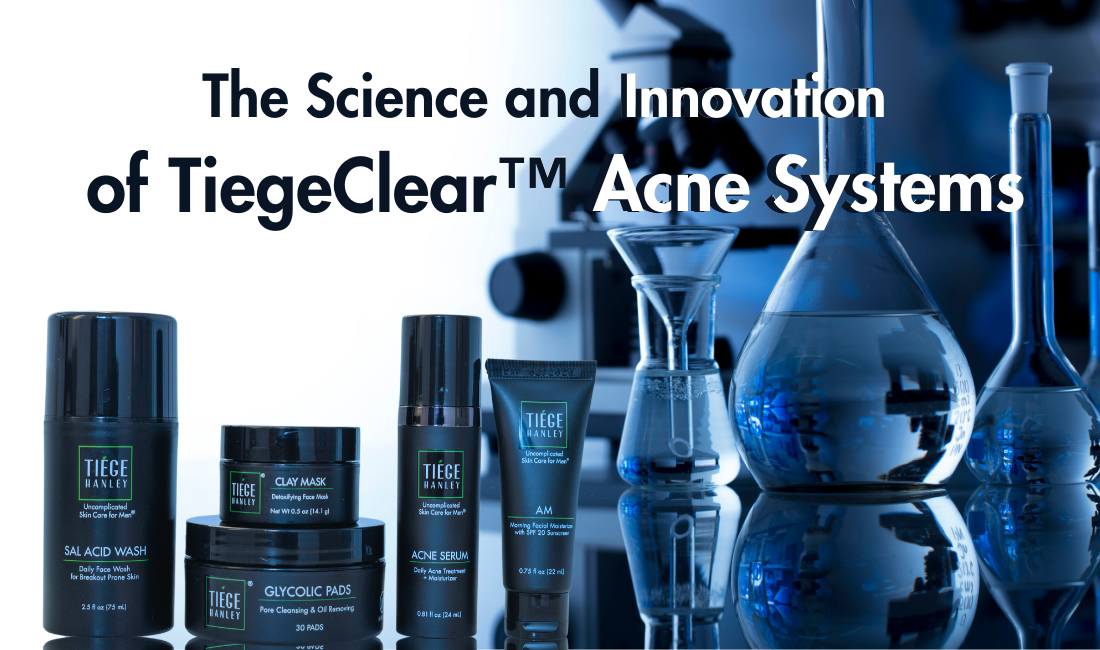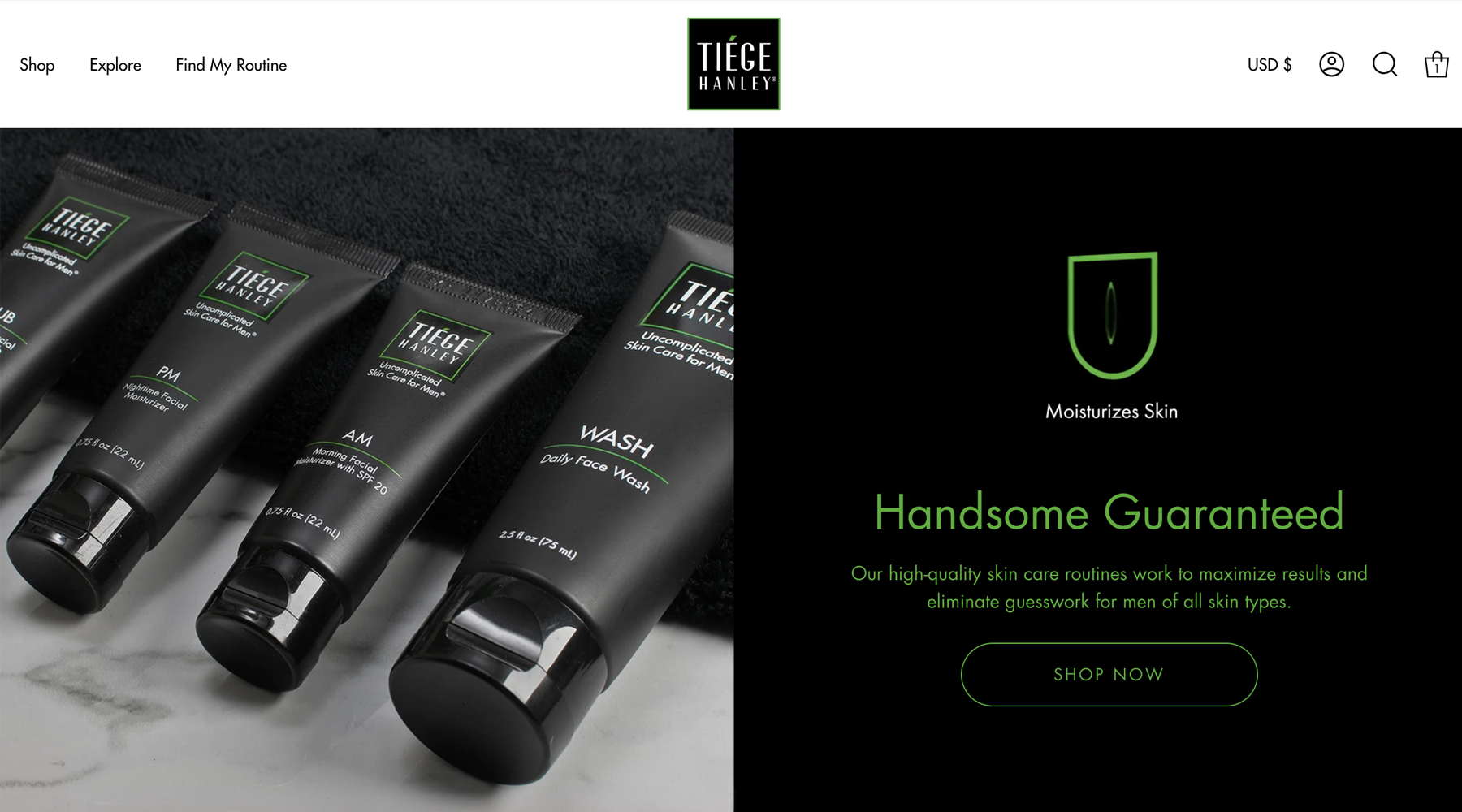For some men, acne will come and go. But for some of us, acne can leave scars behind which can make even the most confident of men self-conscious about their appearance. But there is good news, gentlemen! Skin care technology has come a long way in recent years. If you’re walking around with dark spots and red scars, here are three of the things you ought to know:
- Acne scars can happen to anyone, even when pimples are left completely alone.
- What you think is an acne scar might actually be an acne mark, which is much easier to eliminate.
- Preventing acne from occurring in the first place is the best way to avoid acne scars, but there are also other effective treatments.

What Causes Acne Scars?
It’s important to know what causes acne scarring in the first place. If you think that picking is the only reason, we have some bad news—you can get acne scars even when you leave them completely alone.
Acne scars are most often caused by inflammation from a lesion, pimple or cyst. When an inflamed pore is filled with excess oil and dead skin cells, it allows bacteria to grow. These pores then swell, forming a lesion which often feels painful underneath the skin.
When these lesions rupture, the infected material can spill onto the surface of the skin and destroy healthy skin tissue. To repair this area, the skin begins forming new collagen fibers. If the skin overproduces collagen, this results in a raised acne scar, while underproducing collagen results in pitted acne scars (also known as atrophic scars or icepick scars).

Acne Scars or Acne Marks?
If you notice a dark mark or red mark on your face, it might not be an acne scar. What many believe to be acne scarring is either hyperpigmentation (dark marks) or erythema (red spots). Both hyperpigmentation and erythema are very common in people with acne. The good news is that this discoloration can fade away with time.
The not-so-good news is that it might take a while for these marks to fade (six months or longer) and it isn’t guaranteed to go away completely. To speed up the process, there are skin care systems and treatments that you can use to brighten up these areas.
For example, using a men’s exfoliating scrub can help you fade acne marks naturally and are an essential part of any basic skin care routine.
Take the skin care quizHow to Treat Acne Scars
Acne scars affect more than your skin—they can negatively impact your life. It’s no secret that acne scars are perceived negatively by society, so it only makes sense to want your blemishes gone for good.
Here are a few of the best treatment options for acne scarring:
Acne Prevention. If you already have acne scars, this is probably the last thing you want to be told. But it’s still worth nothing that the best treatment for acne scarring is to prevent them from happening in the first place.
A multi-step acne treatment system is key to good skin, but we know that guys like to keep things simple. That’s why we took all of the guesswork out of our men's skin care system. With an uncomplicated skin care routine, you can stop breakouts before they happen and prevent future scars.
Derma Fillers. Derma fillers involve injecting Hyaluronic Acid into the depressions of the skin to fill and restore its appearance. Although this method is extremely effective at reducing the appearance of scars, the results are temporary and will need repeating overtime.
Laser Treatments. Laser resurfacing uses a fractional laser to deliver controlled heat to the surface of the skin. The body’s natural healing process takes over and removes the damaged tissue, rebuilding it with collagen to form new skin underneath.
This treatment is permanent and particularly effective for stubborn acne scars. However, it does take four to six treatments over a few months to achieve the desired results.
Chemical Peel. A chemical peel is an acid-based solution which is often applied to the entire face. Gentle on skin but tough on scars, chemical peels remove the surface skin cells with controlled damage (i.e., a strong chemical solution). Like laser treatments, the new skin layer is rebuilt, resulting in a brighter, more even complexion.
Although you can find do-it-yourself chemical peels, it’s best to speak with a dermatologist first. Chemical peels can cause irritation and can be harmful if you don’t know what you’re doing.
Conclusion
Whether you’re prone to acne scarring or not, sticking to a regular skin care routine is crucial for good-looking skin. If you still have unsightly scars after getting your acne under control, it doesn’t hurt to speak with a board-certified dermatologist.








